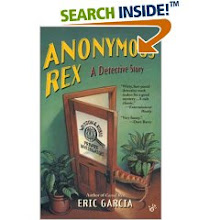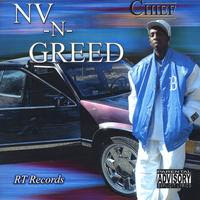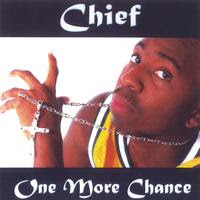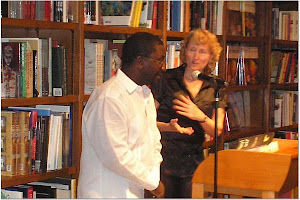"Always vote for principle, though you may vote alone, and you may cherish the sweetest reflection that your vote is never lost."
--John Quincy Adams
I'm not political, but whether you're right or left this is big news.
"Voting Rights Act Section 4 Struck Down By Supreme Court"
The Supreme Court struck down Section 4 of the Voting Rights Act on Tuesday, the provision of the landmark civil rights law that designates which parts of the country must have changes to their voting laws cleared by the federal government or in federal court.
The 5-4 ruling, authored by Chief Justice John Roberts and joined by Justices Antonin Scalia, Anthony Kennedy, Clarence Thomas and Samuel Alito, ruled in Shelby County v. Holder that “things have changed dramatically” in the South in the nearly 50 years since the Voting Rights Act was signed in 1965.
The court’s opinion said it did not strike down the act of Congress “lightly,” and said it “took care to avoid ruling on the constitutionality of the Voting Rights Act” in a separate case back in 2009. “Congress could have updated the coverage formula at that time, but did not do so. Its failure to act leaves us today with no choice but to declare [Section 4] unconstitutional. The formula in that section can no longer be used as a basis for subjecting jurisdictions to preclearance.”
The Voting Rights Act has recently been used to block a voter ID law in Texas and delay the implementation of another in South Carolina. Both states are no longer subject to the preclearance requirement because of the court’s ruling on Tuesday.
“Our country has changed, and while any racial discrimination in voting is too much, Congress must ensure that the legislation it passes to remedy that problem speaks to current conditions,” Roberts wrote.
“There is no doubt that these improvements are in large part because of the Voting Rights Act," he wrote. "The Act has proved immensely successful at redressing racial discrimination and integrating the voting process."
In his bench statement, Roberts said that Congress had extended a 40-year-old coverage formula based on "obsolete statistics and that the coverage formula "violates the constitution."
Congress, the court ruled, “may draft another formula based on current conditions.” But given the fact that Republicans currently control the House of Representatives, many voting rights advocates consider it unlikely that Congress will act to create a new formula.
Justice Ruth Bader Ginsburg issued a wide-ranging dissent on behalf of herself and Justices Stephen Breyer, Sonia Sotomayor, and Elena Kagan, justifying the continued vitality of the Voting Rights Act's preclearance provision.
"The sad irony of today’s decision lies in its utter failure to grasp why the VRA has proven effective," Ginsburg wrote. "The Court appears to believe that the VRA’s success in eliminating the specific devices extant in 1965 means that preclearance is no longer needed."
The court did not rule on Section 5 of the Voting Rights Act, the preclearance requirement itself, which requires those affected states to have changes to their voting laws cleared by the Justice Department or a federal court in Washington, D.C., before they go into effect. Rather, the court ruled that the current formula that determines which states are covered by Section 5 is unconstitutional, effectively eliminating Section 5 enforcement, at least for the time being.
"In the Court’s view, the very success of §5 of the Voting Rights Act demands its dormancy," Ginsburg wrote.
She said in her bench statement that in renewing Section 5 in 2006, Congress "found that 40 years has not been a sufficient amount of time to eliminate the vestiges of discrimination following nearly 100 years of disregard for the 15th Amendment."
The provision has proven "enormously successful" in increasing minority registration and access to the ballot and preventing a "return to old ways," Ginsburg said. Even in jurisdictions where discrimination may not be overt, "subtle methods" have emerged to diminish minority turnout, such as racial gerrymandering.
As for Section 4, Ginsburg wrote that "the record for the 2006 reauthorization makes abundantly clear [that] second-generation barriers to minority voting rights have emerged in the covered jurisdictions as attempted substitutes for the first-generation barriers that originally triggered preclearance in those jurisdictions."
"Justices Breyer, Sotomayor, Kagan and I are of the view that Congress' decision to extend the act and keep the formula was a rational one," Ginsburg said.
In a concurring opinion, Justice Clarence Thomas reiterated his belief that Section 5 is also unconstitutional, a position he took in his dissent from the Court's previous encounter with the Voting Rights Act in 2009.
"However one aggregates the data compiled by Congress, it cannot justify the considerable burdens created by §5," Thomas wrote on Tuesday.
The Obama Justice Department, believing the court might strike down Section 5 in the 2009 case, devised a plan to react to the ruling. A Justice Department spokeswoman did not immediately respond to a request for comment Tuesday.
Voting rights advocates condemned the Supreme Court’s ruling.
“The Supreme Court has effectively gutted one of the nation's most important and effective civil rights laws,” Jon Greenbaum, chief counsel for the Lawyers' Committee for Civil Rights Under Law, said in a statement. “Minority voters in places with a record of discrimination are now at greater risk of being disenfranchised than they have been in decades. Today's decision is a blow to democracy. Jurisdictions will be able to enact policies which prevent minorities from voting, and the only recourse these citizens will have will be expensive and time-consuming litigation.”
“Today’s U.S. Supreme Court decision erases fundamental protections against racial discrimination in voting that have been effective for more than 40 years,” Elisabeth MacNamara, president of the League of Women Voters of the United States, said in a statement. “Congress must act quickly to restore the Voting Rights Act.”
“Today will be remembered as a step backwards in the march towards equal rights,” said Sherrilyn Ifill, President and Director-Counsel of the NAACP Legal Defense and Educational Fund. “We must ensure that this day is just a page in our nation’s history, rather than the return to a dark chapter."
“The Roberts Court proved again that it will not be deterred by Supreme Court precedent, the realities on the ground in our nation; nor will it defer to Congress even when the legislative branch is granted clear authority by the Constitution to remedy our nation's long history of discrimination against racial and language minorities,” said J. Gerald Hebert of the Campaign Legal Center. “The Court today declared racism dead in this country despite mountains of evidence to the contrary.”
A blog for lovers of the printed word (novels, short stories, poems--the Ing so to speak), popular film, politics, and casinos (the Bling).
Subscribe to:
Post Comments (Atom)
Lipshitz 6

Reading T Cooper for Christmas
Click Here to Purchase Lipshitz 6
Punk Blood

Jay Marvin
Click Here to Purchase Punk Blood
Breath, Eyes, Memory

Anonymous Rex

Reading Eric Garcia for Christmas
Click Here to Purchase Anonymous Rex
Vinegar Hill

Reading A. Manette Ansay for Christmas
Click Here to Purchase Vinegar Hill
Nicotine Dreams

Reading Katie Cunningham for Christmas
Click Here to Purchase Nicotine Dreams
Junot Diaz

Pulitzer Prize Winner!!!
Click Here to Purchase The Brief Wondrous Life of Oscar Wao
Edwige Danticat

New Year's Reading
Click Here to Purchase Brother I"m Dying
Greed

This Brother Is Scary Good
Sweet Music
One More Chance

The genius Is At It Again/The Rapper CHIEF aka Sherwin Allen
Sandrine's Letter
Check out Sandrine's Letter To Tomorrow. You will like it, I insist.
Sandrine's Link
Cool Sites
- Akashic Books
- All or Nothing (My Other Blog)
- Asili The Journal
- Best Gamblling News Site
- Black Star Review
- Book Remarks
- Booktour.com
- Carolina Wren Press
- Click Here for Some Pretty Good Writing Contests
- Dedra Johnson
- Enrico Theoc
- Felicia Luna Lemus
- Florida Book Review
- Foreword Magazine
- Gambling Is Linked to Suicide
- Gambling Is Not Linked to Suicide
- Gaming Law Review
- Gene Durnell's The Thinking Journalist
- Gene Durnell's The Thinking Journalist
- Geoffrey Philp's Blog
- Get Chief's CDs on CD Baby
- Getting Past Gambling
- Gonzalo Barr's Blog
- Good Reads
- Hallema's Homepage
- Help With Gambling Addiction
- Jeremy Shipp's Website
- John Dufresne's Blog
- Leonard Nash Homepage
- Links to Seminole Casinos in Florida
- Martha Frankel's Homepage
- Michael A. Gonzales
- Miss Snark/ An Agent Gives Great Publishing Advice
- More Addiction Help
- No Gambling.com
- Pat MacEnulty
- ScrewIowa.com
- St. Louis Rams, The Greatest Show on Turf
- Suicide reference library
- T Cooper
- University of Florida
- Vicki Hendricks
- Walter Jacobs's Blog
- Writers Who Read
- Writing with Celia

All or Nothing

Editorial Reviews of All or Nothing
New York Times--". . . a cartographer of autodegradation . . . Like Dostoyevsky, Allen colorfully evokes the gambling milieu — the chained (mis)fortunes of the players, their vanities and grotesqueries, their quasi-philosophical ruminations on chance. Like Burroughs, he is a dispassionate chronicler of the addict’s daily ritual, neither glorifying nor vilifying the matter at hand."
Florida Book Review--". . . Allen examines the flaming abyss compulsive gambling burns in its victims’ guts, self-esteem and bank accounts, the desperate, myopic immediacy it incites, the self-destructive need it feeds on, the families and relationships it destroys. For with gamblers, it really is all or nothing. Usually nothing. Take it from a reviewer who’s been there. Allen is right on the money here."
Foreword Magazine--"Not shame, not assault, not even murder is enough reason to stop. Allen’s second novel, All or Nothing, is funny, relentless, haunting, and highly readable. P’s inner dialogues illuminate the grubby tragedy of addiction, and his actions speak for the train wreck that is gambling."
Library Journal--"Told without preaching or moralizing, the facts of P's life express volumes on the destructive power of gambling. This is strongly recommended and deserves a wide audience; an excellent choice for book discussion groups."—Lisa Rohrbaugh, East Palestine Memorial P.L., OH
LEXIS-NEXIS--"By day, P drives a school bus in Miami. But his vocation? He's a gambler who craves every opportunity to steal a few hours to play the numbers, the lottery, at the Indian casinos. Allen has a narrative voice as compelling as feeding the slots is to P." Betsy Willeford is a Miami-based freelance book reviewer. November 4, 2007
Publisher’s Weekly--"Allen’s dark and insightful novel depicts narrator P’s sobering descent into his gambling addiction . . . The well-written novel takes the reader on a chaotic ride as P chases, finds and loses fast, easy money. Allen (Churchboys and Other Sinners) reveals how addiction annihilates its victims and shows that winning isn’t always so different from losing."
Kirkus Review--"We gamble to gamble. We play to play. We don't play to win." Right there, P, desperado narrator of this crash-'n'-burn novella, sums up the madness. A black man in Miami, P has graduated from youthful nonchalance (a '79 Buick Electra 225) to married-with-a-kid pseudo-stability, driving a school bus in the shadow of the Biltmore. He lives large enough to afford two wide-screen TVs, but the wife wants more. Or so he rationalizes, as he hits the open-all-night Indian casinos, "controlling" his jones with a daily ATM maximum of $1,000. Low enough to rob the family piggy bank for slot-machine fodder, he sinks yet further, praying that his allergic 11-year-old eat forbidden strawberries—which will send him into a coma, from which he'll emerge with the winning formula for Cash 3 (the kid's supposedly psychic when he's sick). All street smarts and inside skinny, the book gives readers a contact high that zooms to full rush when P scores $160,000 on one lucky machine ("God is the God of Ping-ping," he exults, as the coins flood out). The loot's enough to make the small-timer turn pro, as he heads, flush, to Vegas to cash in. But in Sin City, karmic payback awaits. Swanky hookers, underworld "professors" deeply schooled in sure-fire systems to beat the house, manic trips to the CashMyCheck store for funds to fuel the ferocious need—Allen's brilliant at conveying the hothouse atmosphere of hell-bent gaming. Fun time in the Inferno.
Florida Book Review--". . . Allen examines the flaming abyss compulsive gambling burns in its victims’ guts, self-esteem and bank accounts, the desperate, myopic immediacy it incites, the self-destructive need it feeds on, the families and relationships it destroys. For with gamblers, it really is all or nothing. Usually nothing. Take it from a reviewer who’s been there. Allen is right on the money here."
Foreword Magazine--"Not shame, not assault, not even murder is enough reason to stop. Allen’s second novel, All or Nothing, is funny, relentless, haunting, and highly readable. P’s inner dialogues illuminate the grubby tragedy of addiction, and his actions speak for the train wreck that is gambling."
Library Journal--"Told without preaching or moralizing, the facts of P's life express volumes on the destructive power of gambling. This is strongly recommended and deserves a wide audience; an excellent choice for book discussion groups."—Lisa Rohrbaugh, East Palestine Memorial P.L., OH
LEXIS-NEXIS--"By day, P drives a school bus in Miami. But his vocation? He's a gambler who craves every opportunity to steal a few hours to play the numbers, the lottery, at the Indian casinos. Allen has a narrative voice as compelling as feeding the slots is to P." Betsy Willeford is a Miami-based freelance book reviewer. November 4, 2007
Publisher’s Weekly--"Allen’s dark and insightful novel depicts narrator P’s sobering descent into his gambling addiction . . . The well-written novel takes the reader on a chaotic ride as P chases, finds and loses fast, easy money. Allen (Churchboys and Other Sinners) reveals how addiction annihilates its victims and shows that winning isn’t always so different from losing."
Kirkus Review--"We gamble to gamble. We play to play. We don't play to win." Right there, P, desperado narrator of this crash-'n'-burn novella, sums up the madness. A black man in Miami, P has graduated from youthful nonchalance (a '79 Buick Electra 225) to married-with-a-kid pseudo-stability, driving a school bus in the shadow of the Biltmore. He lives large enough to afford two wide-screen TVs, but the wife wants more. Or so he rationalizes, as he hits the open-all-night Indian casinos, "controlling" his jones with a daily ATM maximum of $1,000. Low enough to rob the family piggy bank for slot-machine fodder, he sinks yet further, praying that his allergic 11-year-old eat forbidden strawberries—which will send him into a coma, from which he'll emerge with the winning formula for Cash 3 (the kid's supposedly psychic when he's sick). All street smarts and inside skinny, the book gives readers a contact high that zooms to full rush when P scores $160,000 on one lucky machine ("God is the God of Ping-ping," he exults, as the coins flood out). The loot's enough to make the small-timer turn pro, as he heads, flush, to Vegas to cash in. But in Sin City, karmic payback awaits. Swanky hookers, underworld "professors" deeply schooled in sure-fire systems to beat the house, manic trips to the CashMyCheck store for funds to fuel the ferocious need—Allen's brilliant at conveying the hothouse atmosphere of hell-bent gaming. Fun time in the Inferno.
At Books and Books

Me And Vicki at Our Reading
Bio
Preston L. Allen is the recipient of a State of Florida Individual Artist Fellowship in Literature and the Sonja H. Stone Prize in Fiction for his short story collection Churchboys and Other Sinners (Carolina Wren Press 2003). His works have appeared in numerous publications including The Seattle Review, The Crab Orchard Review, Asili, Drum Voices, and Gulfstream Magazine; and he has been anthologized in Here We Are: An Anthology of South Florida Writers, Brown Sugar: A Collection of Erotic Black Fiction, Miami Noir, and the forthcoming Las Vegas Noir. His fourth novel, All Or Nothing, chronicles the life of a small-time gambler who finally hits it big. Preston Allen teaches English and Creative Writing in Miami, Florida.
No comments:
Post a Comment